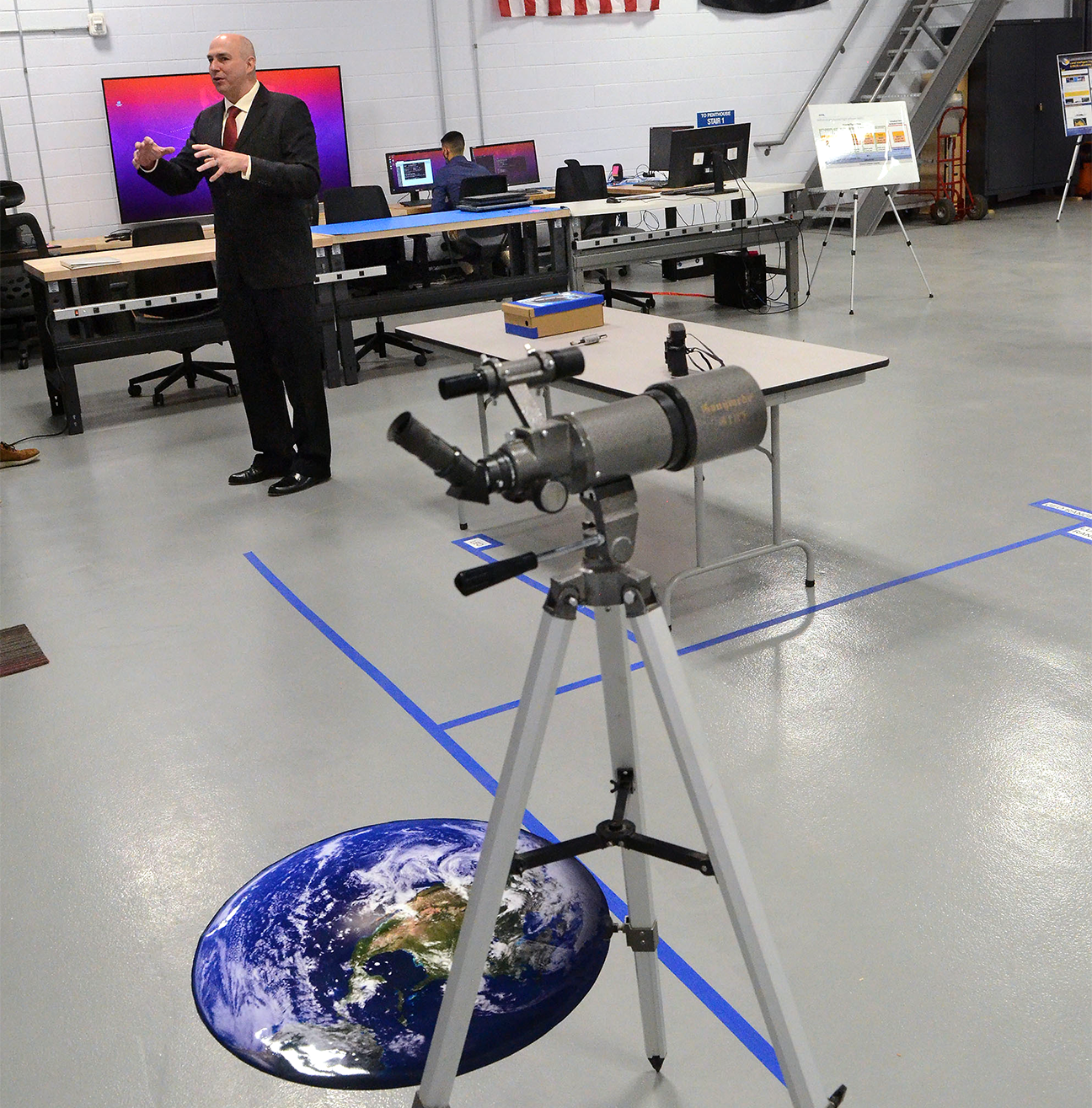AFRL Space Vehicles Directorate holds first-ever Space Cyber Summit
KIRTLAND AIR FORCE BASE, N.M. (AFRL) – The Air Force Research Laboratory’s Space Vehicles Directorate held an inaugural Space Cyber Summit October 13–14. More than 140 space professionals participated in the in-person and virtual event held at Kirtland AFB.
The gathering included space experts from across AFRL, the U.S. Space Force, several federally funded research and development centers, NASA, and many other organizations.
Col. Eric Felt, director of AFRL’s Space Vehicles Directorate, initiated the first-ever event, prompted by anticipated R&D technology challenges:
- A future space domain where space systems will become increasingly software-defined, autonomous, and connected
- Possible methods to improve cyber resilience of legacy space systems
- The continuing trend of the commercialization of space
“AFRL has identified significant and growing threats and opportunities in space cyber, and has committed to doubling our investment in space cyber technologies,” said Felt. “Advancing cyber expertise and technologies will be an element of every space experiment we fly and fully integrated into the engineering of every system AFRL designs and transitions.”
Joseph “Dan” Trujillo, the directorate’s space cyber resiliency tech area lead, explained that the overarching goal of the summit was to identify DOD organizations that are performing research and development in cyber, as well as to identify stakeholders and operations groups.
Trujillo said that the specific goals of the inaugural event were to:
- Identify DOD R&D, stakeholders, and operators that are concerned about cyber in the space domain, specifically in the areas of space vehicles, constellations, ground-based space support systems, and the networks that connect them
- Identify what each organization is working on
- Identify the gaps that need to be addressed
- Start to build the plan, priorities, and roadmap for securing the nation’s space systems from cyber vulnerabilities
“The American public and government need to understand the critical services space systems provide in their everyday life, including commerce, navigation, and communication,” Trujillo said. “We must ensure our legacy systems can operate within a cyber-contested environment, and build the next generation of cyber-secure systems.”
AFRL plans to hold an annual Space Cyber Summit with a new theme each year.
“We want to build on the community and collaborations, and bring the best minds and cutting edge efforts in the space cyber arena to continue the discussion and move forward in filling the gaps,” Trujillo said.
Felt also discussed the importance of the work the space cyber community is doing for the nation and encouraged all of the summit participants as they go forward.
“The cyber community has tremendous ideas and will be key in pulling those ideas together into roadmaps and experiments to out-innovate the U.S.’s peer competitors and maintain cyber as a U.S. advantage rather than a liability,” he said.

Brian Engberg, AFRL’s Space Control branch chief, facilitated the research lab’s first-ever Space Cyber Summit held at Kirtland AFB, N.M. Oct. 13-14. Here, he addresses visitors during the ribbon-cutting event for the Space Warfighting Operations Research and Development (SWORD) Lab held earlier this year. (Courtesy photo)
